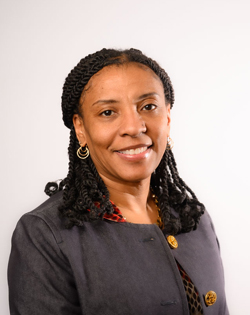Faculty Ombudsperson
Ombuds Ethics and Standards of Practice
As a member of the International Ombudsman Association (IOA), the faculty ombuds operates according to four important ethical principles.
Confidentiality
Communication with the Ombuds is confidential and off-the record. This includes:
- Whether someone has or has not met with the Ombuds
- The identity of the visiting faculty
- The content of a faculty’s concerns in any way that could identify the faculty
The Ombuds may share identifiable information if the faculty gives specific permission to do so and the Ombuds deems the sharing of information to be helpful in resolving a concern. For example, if a faculty wants the Ombuds to facilitate a conversation with a third party, some disclosure of identifiable information may be necessary. In such situations, the Ombuds will exercise discretion and will not disclose information the faculty wishes to keep confidential.
The Ombuds is required to disclose confidential information if and when there is, as judged by the Ombuds:
- An imminent risk of serious harm to any person
- Suspected maltreatment of a child or endangered adult
- A court order requiring such disclosure
Neutrality/Impartiality
The Ombuds advocates for fairness, equity, and objectivity in the treatment of all persons and issues. Thus, the Ombuds:
- Impartially considers the rights and interests of all parties
- Seeks equitable and mutually agreeable resolutions
- Avoids taking sides by representing or advocating for any one party
- Avoids involvement and refers faculty elsewhere in situations in which there may be a real or perceived conflict of interest
Independence
The Ombuds operates independently from other organizational entities and is not part of the formal reporting structure of the University. This means that the faculty ombuds:
- Has sole discretion about whether and how to become involved in a matter
- Operates without concern for interference, retaliation, or the control of individuals outside the office
- Has access to all individuals and information necessary to resolve a matter (except where prohibited by law or University policy)
For administrative purposes and evaluation of the faculty Ombuds, the Ombuds reports to the Provost; however, the provost does not control or interfere in operations of the Office and do not have access to information that is confidentially disclosed to the faculty Ombuds.
Informality
The Ombuds is meant to supplement—not replace—formal channels within the University. This means that:
- Meeting with the Ombuds is completely voluntary and cannot be required as part of, or a pre-requisite to, any other process (e.g., prior to filing a grievance)
- The Ombuds does not investigate, arbitrate, or participate in any formal process
- The Ombuds has no authority to make findings of fact or fault, and cannot make, change, set aside, or enforce policies or administrative decisions.
The Faculty Ombuds does not maintain formal records other than basic information used to identify patterns and trends within the University. Any notes taken about specific situations are routinely destroyed.
Some of the links on this page may require additional software to view.


